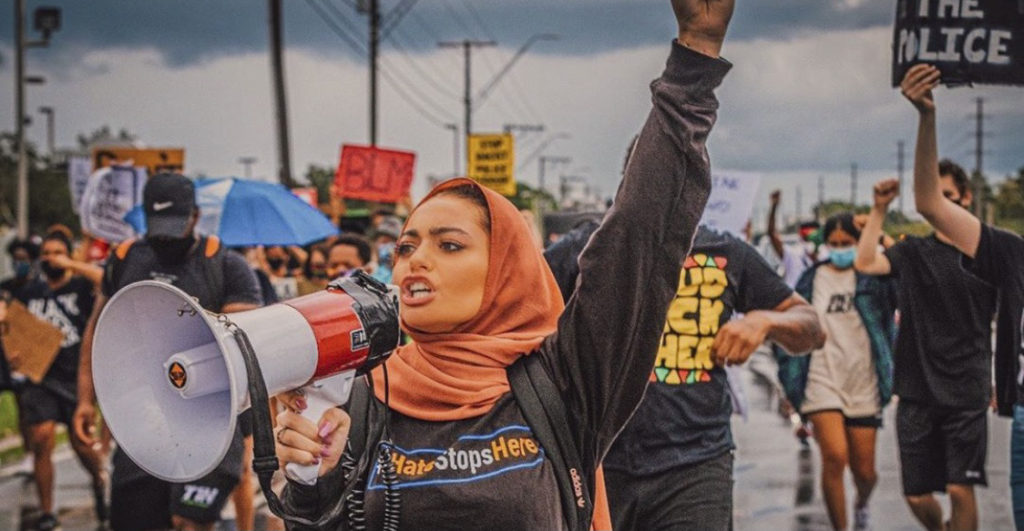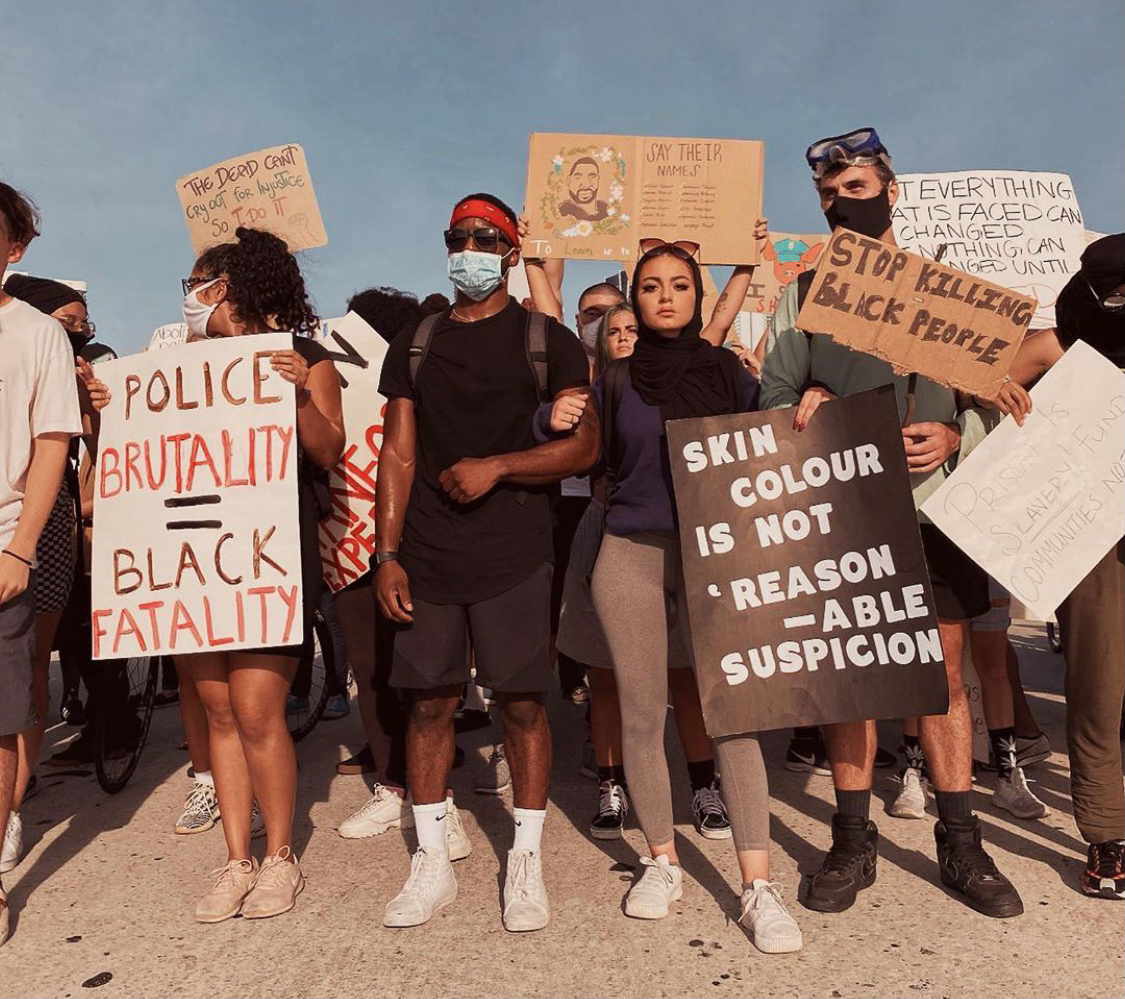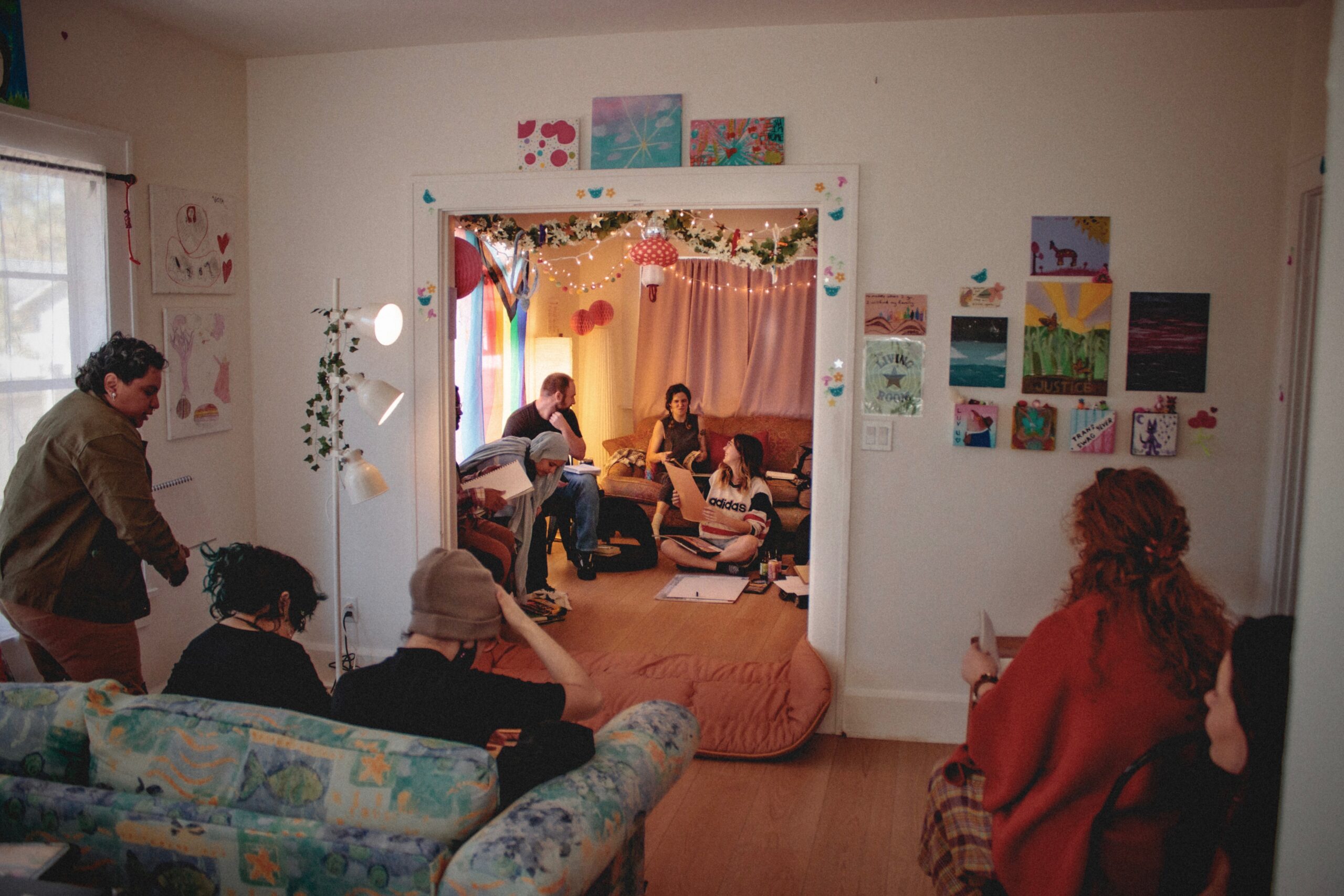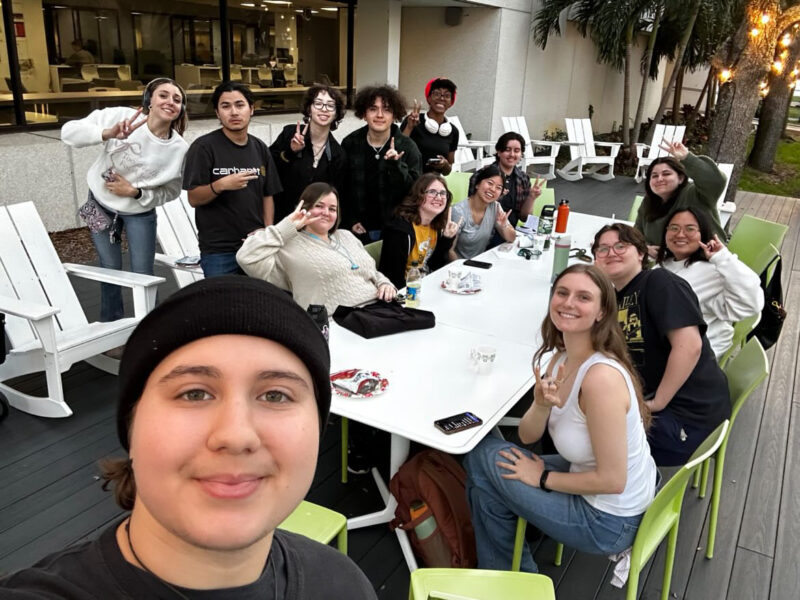Pictured Above: USF Tampa Sophomore Alaa Massri holds a sign that reads: “Skin colour is not reasonable suspicion.”
Courtesy of Noor Massri
By Maya Levy
Joseph Martinez, 29, was bleeding on the ground. A dense cloud of tear gas lingered in the air, burning the eyes, noses and mouths of protesters nearby. Underneath a bridge, Alaa Massri, 19, huddled with her fellow activists clutching a first aid kit to her chest.
From her vantage point, Massri could see Martinez, wounded in the road, the line of police continuing forward. Massri knew she couldn’t walk away, and ran out into the street. She was kneeling on the asphalt to bandage Martinez’ wounds when a rubber bullet hit Massri’s side.
Her pulse pounded in her temples as she lifted Martinez to his feet. Together, they limped off of the street and into safety.
The physical exertion of the act left Massri exhausted, and she collapsed once among her peers.
While the bruises from that day have long since faded, the memory remains a painful reminder of what Massri is fighting for. She wishes it was the only one.
Massri is a sophomore criminology major at USF Tampa who protests against racial discrimination and socioeconomic inequality.
She has been involved in activism since before 2016. Her sister Noor Massri, 18, recalls their first protest, which called for the abolition of U.S. Immigration and Customs Enforcement.
Alaa Massri persuaded her sister to pursue activism and march alongside her through the streets of Miami last summer.
The sisters both plan to attend law school in the hope of continuing their activism throughout their careers. If it had not been for her sister’s encouragement, Noor said, she would not have discovered her passion for reforming the prison system.
“She’s like a mother figure to me,” Noor Massri said. “She’s always pushed me to educate myself and protest.”
Alaa Massri has organized 50 protests since the beginning of May and takes to the streets regularly to demand justice for the predominantly black victims of police brutality.
Inspired by the changes the marches have influenced, Massri founded a Miami organization called Our Power United.
The organization focuses on community service-oriented activism, in the belief that social change relies on both demonstrations and community support.
“This movement goes beyond protesting,” Massri said. “It goes into helping your community because that is what really makes a difference.”
While most of the protests in Miami last summer were peaceful, with little interference by the police, Massri said, she experienced several instances of physical abuse from riot officers.
On June 10, Massri gained national attention after she was arrested at a protest at the site of statues of Christopher Columbus and Juan Ponce de Leon. She was charged with battery against an officer, resisting an officer with violence to his person and disorderly conduct, according to The New York Times.
While in police custody, an officer forcibly removed her hijab in front of a room full of male inmates to take a booking photo of her.
“It was like someone stripping you naked in front of a whole bunch of strangers,” Massri said, looking down at her lap. “I never expected to be exposed the way that I was.”
Martinez was one of the protesters arrested with her that night. He remembers trying to defend her while being handcuffed to a chair with his arms crossed behind his back. Vulnerable and powerless, his words remained ignored by the guards as her hijab was removed from her head.
“(The guards) had no heart,” Martinez said. “I was trying to reassure her, but it was a scary experience.”
National news channels and online websites broadcast her mugshot after the story broke.
The Council of American-Islamic Relations of Florida assisted Massri’s legal team and the charges against her were eventually dropped. Now CAIR is helping her pursue a civil rights case against the Miami-Dade Police Department.
Although the charges were dropped, Massri said her life was changed by that night. Activists across the country now celebrate her for the strength it took to tell her story.
To say that the gravity of her experiences has not taken a toll on Massri would be a lie. The violation of self, which she experienced in police custody, along with the threats she has received from strangers on social media, have deeply affected her mental health.
According to Noor Massri, the sound of a police siren is enough to send her sister into a panic.
For now, Massri is shifting her focus toward using her platform to raise awareness for the many issues that still affect communities of color.
With the election looming, Massri has been featured in Surj Magazine, Her Zindagi and a story and podcast episode by The Oracle, in which she urged young people to vote on Nov. 3.
“It’s a long fight,” Massri said. “We have to focus on the end goal, liberation for all people.”

Courtesy of Dave Decker



